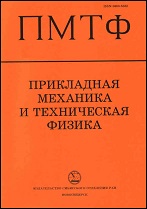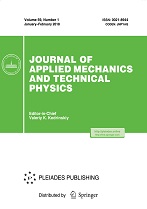|
This article is cited in 4 scientific papers (total in 4 papers)
Generalized mathematical model of hydrate formation in gas pipelines
È. A. Bondarev, I. I. Rozhin, K. K. Argunova
Institute of Oil and Gas Problems, Siberian Branch, Russian Academy of Sciences, Yakutsk, 677980, Russia
Abstract:
A computational experiment has been performed to study the effect of the change in the main pipeline cross section due to hydrate formation on hydraulic resistance and the temperature and pressure dynamics taking into account quasi-stationary heat exchange with permafrost ground. The case is considered where wet gas is supplied to the pipeline and the dynamics of hydrate formation is determined along with other parameters. The calculations are carried out until the outlet pressure becomes lower than standard one. The experiment showed that a model in which the hydraulic resistance coefficient is considered constant leads to a significant underestimation of the permissible pipeline operation time. Consequently, in mathematical modeling of hydrate formation in natural gas pipelines, taking into account the relationship between heat transfer and viscous friction is critical.
Keywords:
conjugate heat exchange problems, pipeline transport of natural gas, natural gas hydrates.
Received: 18.09.2018
Revised: 20.11.2018
Accepted: 24.12.2018
Citation:
È. A. Bondarev, I. I. Rozhin, K. K. Argunova, “Generalized mathematical model of hydrate formation in gas pipelines”, Prikl. Mekh. Tekh. Fiz., 60:3 (2019), 120–127; J. Appl. Mech. Tech. Phys., 60:3 (2019), 503–509
Linking options:
https://www.mathnet.ru/eng/pmtf443 https://www.mathnet.ru/eng/pmtf/v60/i3/p120
|


|





 Contact us:
Contact us: Terms of Use
Terms of Use
 Registration to the website
Registration to the website Logotypes
Logotypes








 Citation in format
Citation in format 
